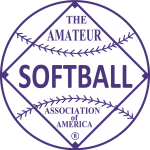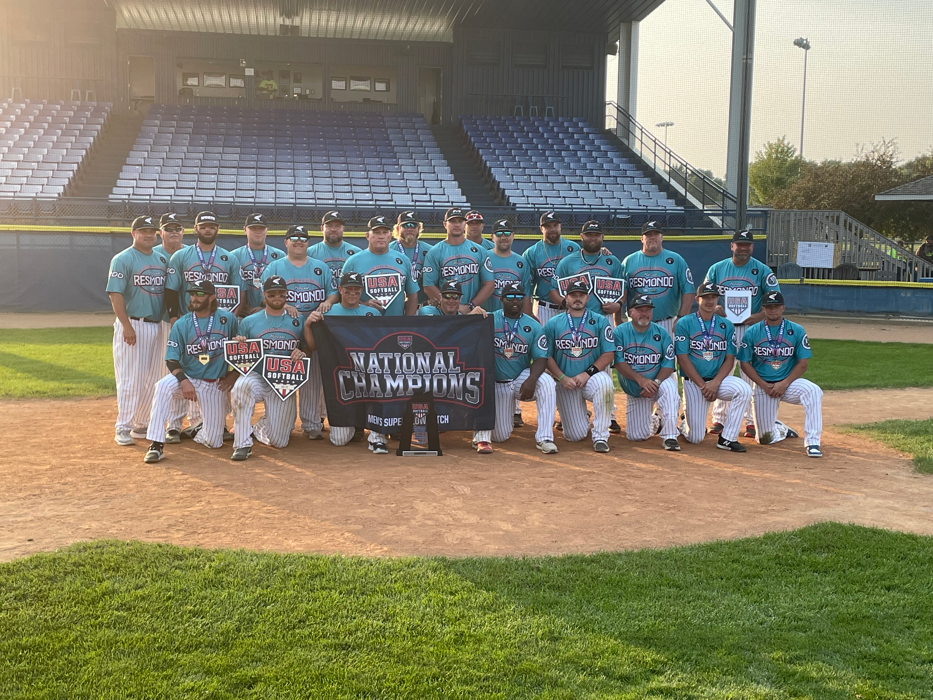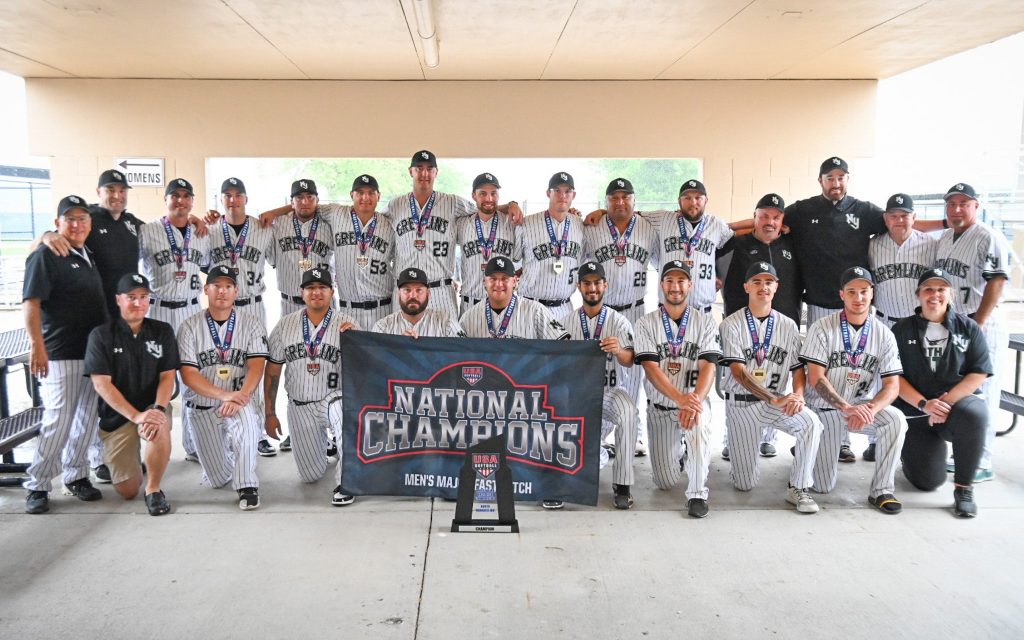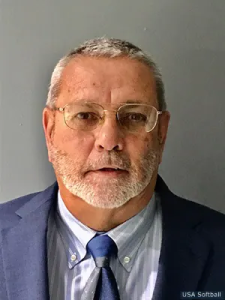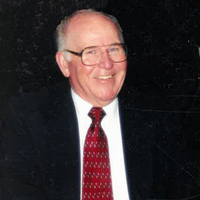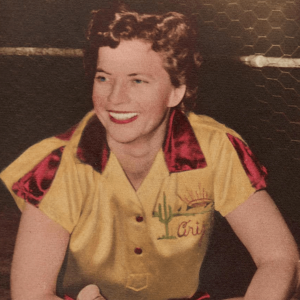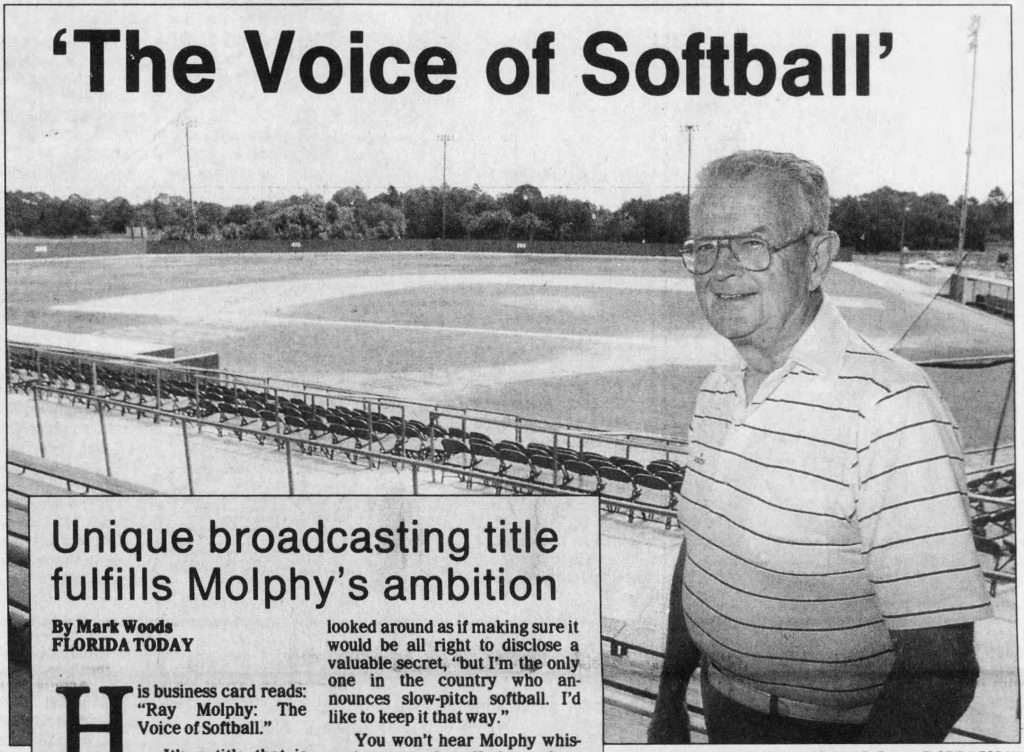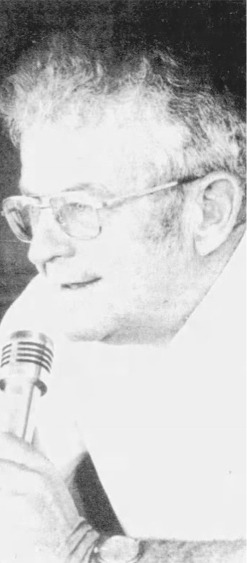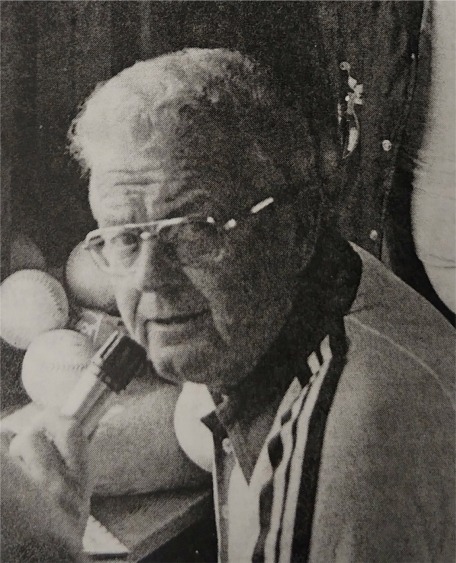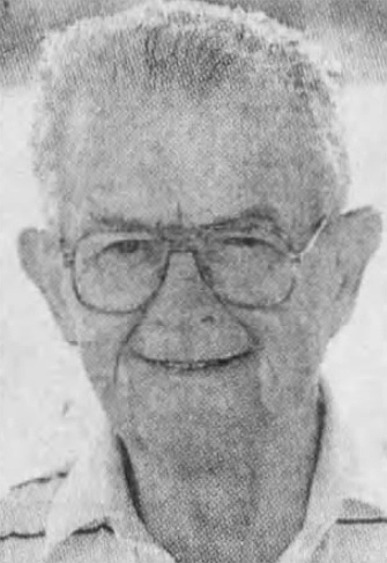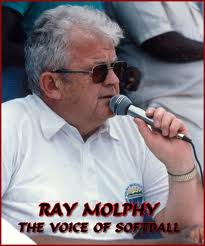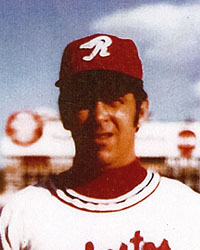2023 held at Joe Schleper Stadium at Tahpah Park in Shakopee, Minnesota on August 17-18.
Champion – Resmondo/SIS/All American/Menosse/RDD/Stub Terminal/S&S, Winter Haven, Florida
Runner Up – The Herd, Urbandale, Iowa
A champion was crowned today at Tahpah Park in Shakopee, Minn. as Resmondo/SIS/All American/Menosse/RDD/Stub Terminal/S&S defeated The Herd 27-14 in the final contest of the USA Softball Men’s Super Slow Pitch National Championship. With a perfect 4-0 record through the tournament, Resmondo outscored its opponents 98-32 en route to the prestigious National Championship title.
Kicking things off with a win in the first matchup of the tournament, Resmondo took Game 1 against NE/Pure by a score of 29-7 before defeating Tharaldson on Saturday morning, 18-2. Continuing its streak in the semi-final contest, Resmondo took down The Herd, 24-9, to clinch its spot in the title game at 4:30 p.m CT on Friday evening.
Also proving a dominate presence on the field, The Herd started the event strong with an explosive 33-12 win over Comatose/S2N/Monsta followed by a 10-5 victory against T’s 13. Dropping to the loser’s bracket after a loss to Resmondo in the semi-finals, The Herd bounced back with a 20-13 battle against T’s 13 to advance to the Championship game.
Resmondo pulled ahead early in the title matchup against The Herd thanks to a pair of singles and a home run to score three – but the Herd answered back with two singles of its own followed by a sac fly in the bottom of the frame to scratch a run and close the 3-1 gap after one inning. Consistently chipping away, Resmondo plated one in the top of the second before breaking the game open in the third with three home runs to extend the lead, 10-1. The Herd – known for its fight at the plate – refused to back down and strung together seven singles, two walks and a triple to steal the momentum and bring the squad within one run. With a score of 10-9 heading into the fourth inning, Resmondo was unfazed – leading off with a double followed by three more home runs to take back the momentum in the 14-9 game.
Threatening the lead once again in the bottom of the fourth, back-to-back singles and a home run from The Herd brought the score to 14-12 – but it wouldn’t last long as the Resmondo bats exploded in the fifth inning with three singles, three doubles and two home runs to score eight more runs. Continuing to add-on in the final two innings, Resmondo’s tally grew to 27 runs while The Herd added two with a home run in the seventh but would prove not enough as Resmondo/SIS/All American/Menosse/RDD/Stub Terminal/S&S claimed the 27-14 victory and the 2023 Men’s Super Slow Pitch National Championship title.
This was the 33rd time the ASA Super National Championship has been held.
- MVP – Tyler Marshburn, Resmondo/SIS/All American/Menosse/RDD/Stub Terminal/S&S
- Batting Champion – Bradley Jones, Resmondo/SIS/All American/Menosse/RDD/Stub Terminal/S&S (.867)
- HR Champion – Jason Matusik, Resmondo/SIS/All American/Menosse/RDD/Stub Terminal/S&S (6)
FIRST TEAM ALL-AMERICANS
P – Travis Clark – Resmondo/SIS/All American/Menosse/RDD/Stub Terminal/S&S (8-12, .667, 4 HR, 11 RBI, 6 Runs)
IF – Blaine Horsager – Tharaldson (5-8, .625, 2 Runs)
IF – Jake Hohensee – T’s 13 (8-13, .615, 1 HR, 3 RBI, 5 Runs)
IF – Brett Rettenmeier – The Herd (14-20, .700, 4 HR, 14 RBI, 11 Runs)
IF – Tyler Marshburn – Resmondo/SIS/All American/Menosse/RDD/Stub Terminal/S&S (12-16, .750, 1 HR, 6 RBI, 11 Runs)
IF – Phil Matte – Resmondo/SIS/All American/Menosse/RDD/Stub Terminal/S&S (10-12, .833, 4 HR, 11 RBI, 10 Runs)
OF – Zach Woodside – The Herd (10-16, .625, 2 HR, 11 RBI, 6 Runs)
OF – Brent Zomer – The Herd (7-13, .538, 3 HR, 10 RBI, 8 Runs)
OF – Bradley Jones – Resmondo/SIS/All American/Menosse/RDD/Stub Terminal/S&S (13-16, .846, 1 HR, 8 RBI, 10 Runs)
OF – Jason Matusik – Resmondo/SIS/All American/Menosse/RDD/Stub Terminal/S&S (11-15, .733, 6 HR, 15 RBI, 10 Runs)
UT – Bryan Dezern – T’s 13 (6-14, .429, 3 HR, 11 RBI, 4 Runs)
UT – Alex Hovey – The Herd (15-21, .714, 1 HR, 5 RBI, 4 Runs)
UT – Chris Bauer – The Herd (12-19, .632, 1 HR, 5 RBI, 4 Runs)
UT – Matt Schrage – The Herd (13-20, .650, 5 HR, 11 RBI, 12 Runs)
UT – Josh Riley – Resmondo/SIS/All American/Menosse/RDD/Stub Terminal/S&S (9-15, .600, 2 HR, 5 RBI, 6 Runs)
FINAL STANDINGS
1. Resmondo/SIS/All American/Menosse/RDD/Stub Terminal/S&S, Winter Haven, FL (4-0)
2. The Herd, Urbandale, IA (3-2)
3. T’s 13, Omaha, NE (2-2)
4. Tharaldson, Fargo, ND (1-2)
5t. Comatose/S2N/Monsta, Beloit, WI (0-2)
5t. Northwoods Elite/Pure, Bloomer, WI (0-2)
OTHERS
Kyle Pearson (LA), Resmondo/SIS/All American/Menosse/RDD/Stub Terminal/S&S (13-18, .722, 5 HR, 13 RBI, 11 Runs)
Greg Connell, Resmondo/SIS/All American/Menosse/RDD/Stub Terminal/S&S (8-13 .615, 3 HR, 4 RBI, 9 Runs)
Andrew Collins, Resmondo/SIS/All American/Menosse/RDD/Stub Terminal/S&S (7-12, .583, 1 HR, 2 RBI, 3 Runs)
Kevin Bazat, Resmondo/SIS/All American/Menosse/RDD/Stub Terminal/S&S (7-12, .583, 5 RBI, 4 Runs)
Kyle Aken, T’s 13 (8-14, .571, 1 Run, 4 RBI)
Patrick Ellwanger, The Herd (12-22, .545, 2 HR, 8 RBI, 6 Runs)
Quinn Cannoy, The Herd (9-17, .529, 1 HR, 4 RBI, 10 Runs)
The Super Division was created to combat pro softball leagues and to give all teams the chance to “bring what you got” to a national championship while preserving their amateur status in 1981.
- 1981 – Howard’s/Western Steer, Denver, North Carolina
- 1982 – Jerry’s Caterers, Miami, Florida
- 1983 – Howard’s/Western Steer, Denver, North Carolina
- 1984 – Howard’s/Western Steer, Denver, North Carolina
- 1985 – Steele’s Sports, Grafton, Ohio
- 1986 – Steele’s Sports, Grafton, Ohio
- 1987 – Steele’s Sports, Grafton, Ohio
- 1988 – Starpath, Monticello, Kentucky
- 1989 – Ritch’s Salvage, Harrisburgh, North Carolina
- 1990 – Steele’s Silver Bullets, Grafton, Ohio
- 1991 – Sunbelt/Worth, Centerville, Georgia
- 1992 – Ritch’s-Superior/TPS, Windsor Locks, Connecticut
- 1993 – Ritch’s-Superior/TPS, Windsor Locks, Connecticut
- 1994 – Bell Corp/Easton, Tampa, Florida
- 1995 – Lighthouse/Worth, Stone Mountain, Georgia
- 1996 – Ritch’s-Superior/Tri-Gems/Beloli/TPS, Windsor Locks, Connecticut
- 1997 – Ritch’s-Superior/Tri-Gems/Beloli/TPS, Windsor Locks, Connecticut
- 1998 – Lighthouse/Worth, Stone Mountain, Georgia
- 1999 – Team Easton, Burlingame, California
- 2000 – Team TPS, Louisville, Kentucky
- 2001 – Long Haul/Taylor Bros/Shen Corp/TPS, Albertville, Minnesota
- 2002 – Long Haul/Taylor Bros/Shen Corp/TPS, Albertville, Minnesota
- 2003 – Hague/Resmondo/Taylor Bros/Sunbelt, Columbus, Ohio
- 2013 – H. Auto/Easton, Cicero, New York
- 2014 – Long Haul/H. Auto/Easton, Cicero, New York
- 2015 – BBS/Mr. D’s/Rip City, Rochester, Minnesota
- 2016 – O&S Cattle/Mr. D’s, Stillwater, Minnesota
- 2017 – West Coast Monsta, Calimesa, California
- 2018 – H. Auto/RDD/All In/Sprizzi/Easton, Cicero, New York
- 2019 – H. Auto/RDD/Sprizzi/S&S/Easton, Le Sueur, Minnesota
- 2020 – H. Auto/RDD/Sprizzi/S&S/Easton, Cicero, New York
- 2021 – Thunder/SIS/Chosen/All American/Menosse/RDD/S&S, Cicero, New York
- 2023 – Resmondo/SIS/All American/Menosse/RDD/Stub Terminal/S&S, Winter Haven, Florida

